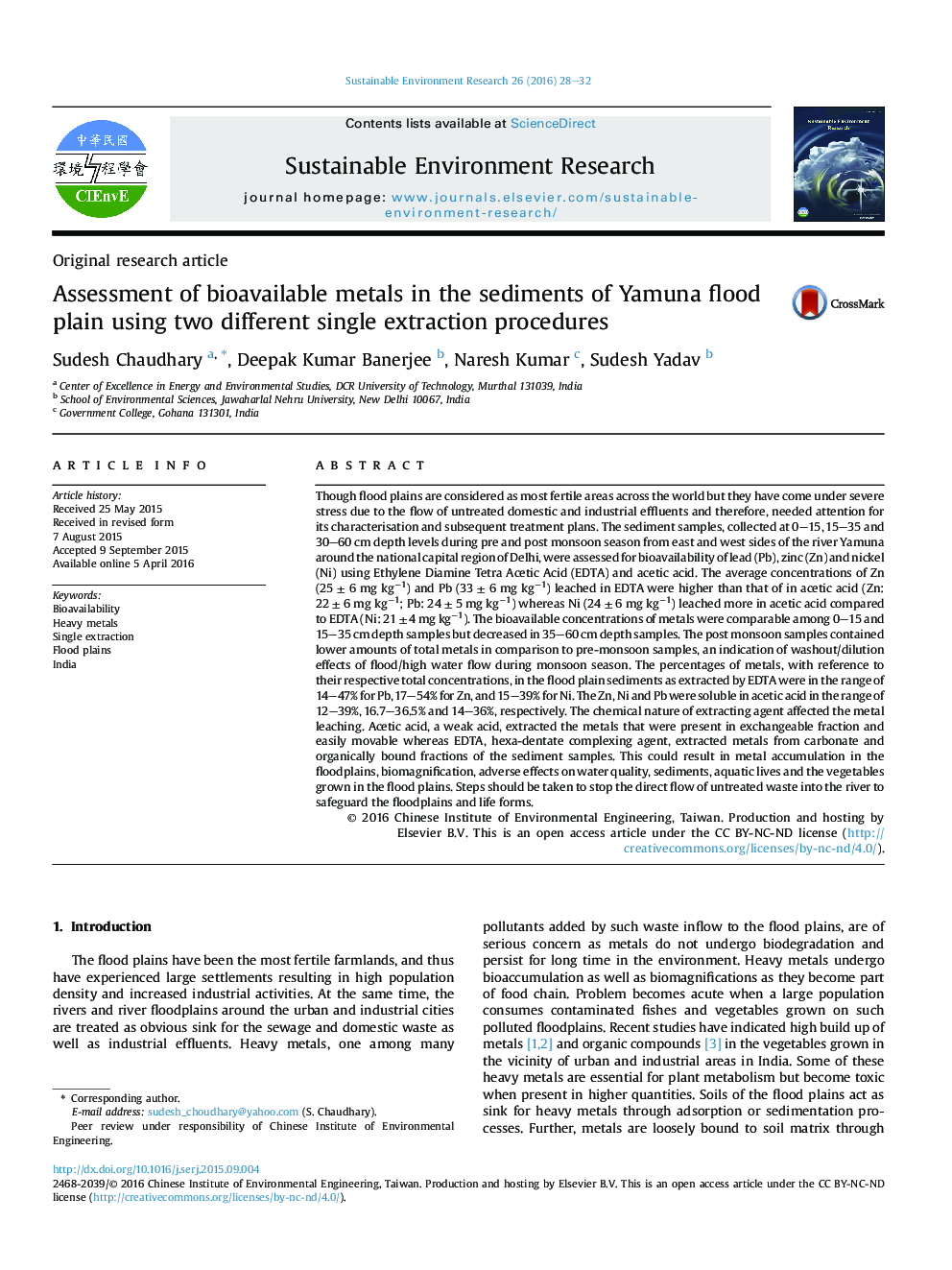| کد مقاله | کد نشریه | سال انتشار | مقاله انگلیسی | نسخه تمام متن |
|---|---|---|---|---|
| 4435402 | 1310558 | 2016 | 5 صفحه PDF | دانلود رایگان |
Though flood plains are considered as most fertile areas across the world but they have come under severe stress due to the flow of untreated domestic and industrial effluents and therefore, needed attention for its characterisation and subsequent treatment plans. The sediment samples, collected at 0–15, 15–35 and 30–60 cm depth levels during pre and post monsoon season from east and west sides of the river Yamuna around the national capital region of Delhi, were assessed for bioavailability of lead (Pb), zinc (Zn) and nickel (Ni) using Ethylene Diamine Tetra Acetic Acid (EDTA) and acetic acid. The average concentrations of Zn (25 ± 6 mg kg−1) and Pb (33 ± 6 mg kg−1) leached in EDTA were higher than that of in acetic acid (Zn: 22 ± 6 mg kg−1; Pb: 24 ± 5 mg kg−1) whereas Ni (24 ± 6 mg kg−1) leached more in acetic acid compared to EDTA (Ni: 21 ± 4 mg kg−1). The bioavailable concentrations of metals were comparable among 0–15 and 15–35 cm depth samples but decreased in 35–60 cm depth samples. The post monsoon samples contained lower amounts of total metals in comparison to pre-monsoon samples, an indication of washout/dilution effects of flood/high water flow during monsoon season. The percentages of metals, with reference to their respective total concentrations, in the flood plain sediments as extracted by EDTA were in the range of 14–47% for Pb, 17–54% for Zn, and 15–39% for Ni. The Zn, Ni and Pb were soluble in acetic acid in the range of 12–39%, 16.7–36.5% and 14–36%, respectively. The chemical nature of extracting agent affected the metal leaching. Acetic acid, a weak acid, extracted the metals that were present in exchangeable fraction and easily movable whereas EDTA, hexa-dentate complexing agent, extracted metals from carbonate and organically bound fractions of the sediment samples. This could result in metal accumulation in the floodplains, biomagnification, adverse effects on water quality, sediments, aquatic lives and the vegetables grown in the flood plains. Steps should be taken to stop the direct flow of untreated waste into the river to safeguard the floodplains and life forms.
Journal: Sustainable Environment Research - Volume 26, Issue 1, January 2016, Pages 28–32
